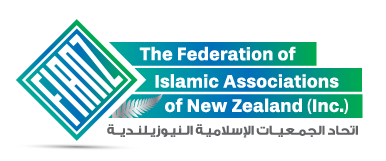An Islamic bank would build interest any al other expenses into the initial loan amount. It’s deceptive to think it is free money.

New Zealand’s major Muslim association is setting up an institution to provide banking services that conform with Islamic religious law – meaning it won’t charge interest. And it would be open to all New Zealanders, regardless of background.
The Federation of Islamic Associations of New Zealand is working with consultants Deloitte to create something similar to a credit union, with cash machines and all the services usually associated with banks. Capital is being sought here and overseas.
Javed Khan, the FIANZ president, said such services would be supported “one hundred per cent” by New Zealand Muslims, who had waited a long time for them. He predicted that an Islamic bank would unleash a lot of economic activity among the Muslim community’s estimated 40,000 members in New Zealand.
Islamic religious law, or Sharia, prohibited interest. Money could be invested only in ethical industries, ruling out anything associated with the likes of tobacco, alcohol, or pornography. Profit-sharing replaced payment of interest.
If an Islamic bank customer wanted to buy something major like a house, the bank would purchase it, add a premium, then take repayment in instalments over time. “At the moment you have no choice,” said Mr Khan, a solicitor with NZ Post. Many Muslims in New Zealand would not buy houses or start businesses, he said, as they were ill at ease with the idea of interest.
He had a mortgage, but admitted to feeling “very uncomfortable” about it as he was not following Islamic teaching. He found the lack of choice in financial services “inhibiting”. “I would like to do so many things – like investing – but I can’t.”
Faris Azimullah, the director of Deloitte’s Enterprise Risk Services, said Islamic banks offered stability and certainty as they were not exposed to interest rate fluctuations. They were open to all, and research showed they were attractive to non-Muslims. In strongly Muslim Malaysia, almost 70 per cent of Islamic bank clients were non-Muslim.
Research had also shown that clients got a “slightly better deal” financially compared to mainstream banks.
“This is a great opportunity for Kiwis to really ask their banks what they are doing for them,” said Mr Azimullah.
Islamic banks were profitable, he said, and their loans had lower default rates than conventional loans.
The first Islamic banks dated from the early 1960s in Egypt and Malaysia. Islamic banks’ assets worldwide were now estimated to be worth $363 billion. Some mainstream banks overseas, such as Citibank, Deutsche Bank and ABN Amro, offered Sharia-compliant products.
* Plans for an Islamic life insurance policy have been dumped by financial services company NZ ING Life. Managing director Naomi Ballantyne said the company decided two weeks ago that the numbers didn’t stack up.
Islamic bank to share its profits and avoid interest
